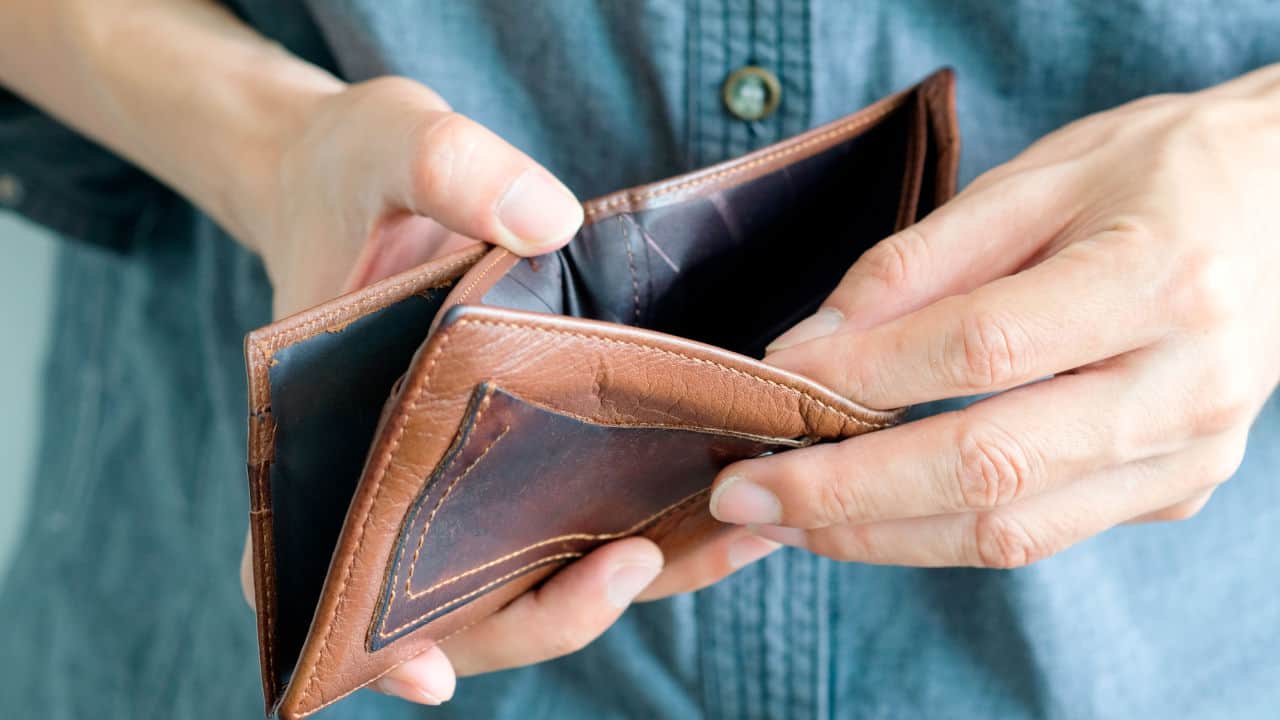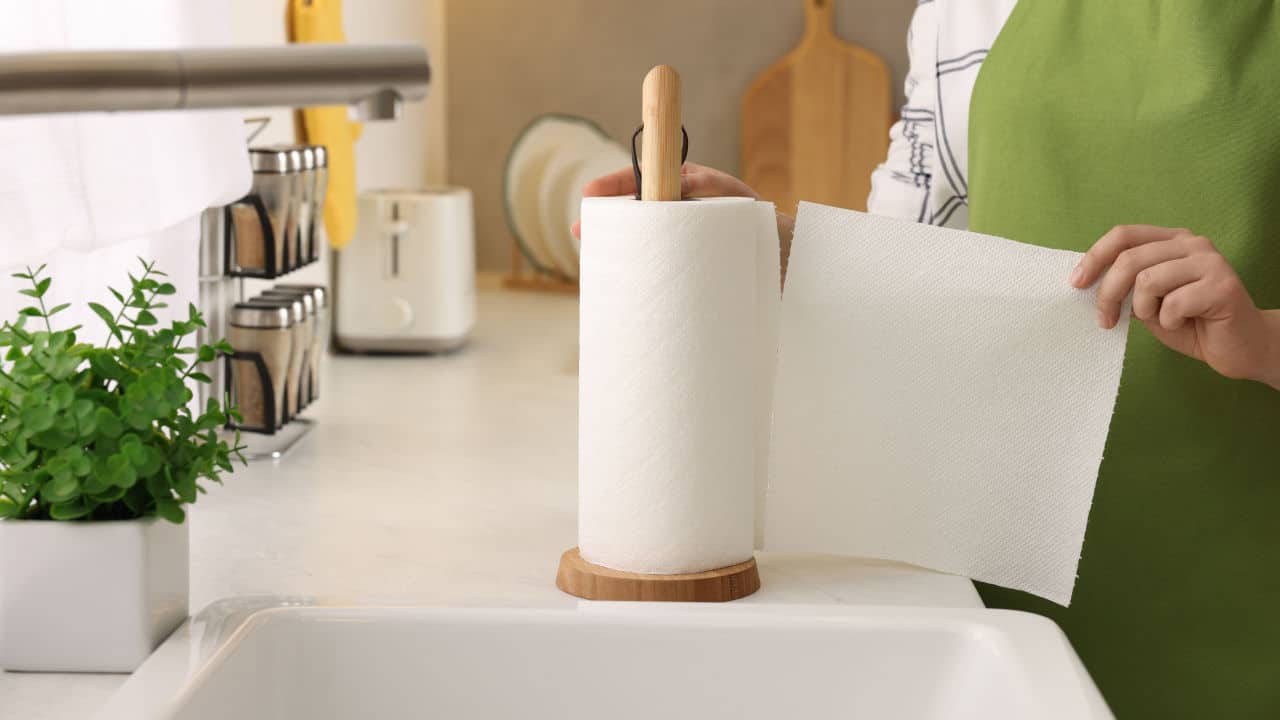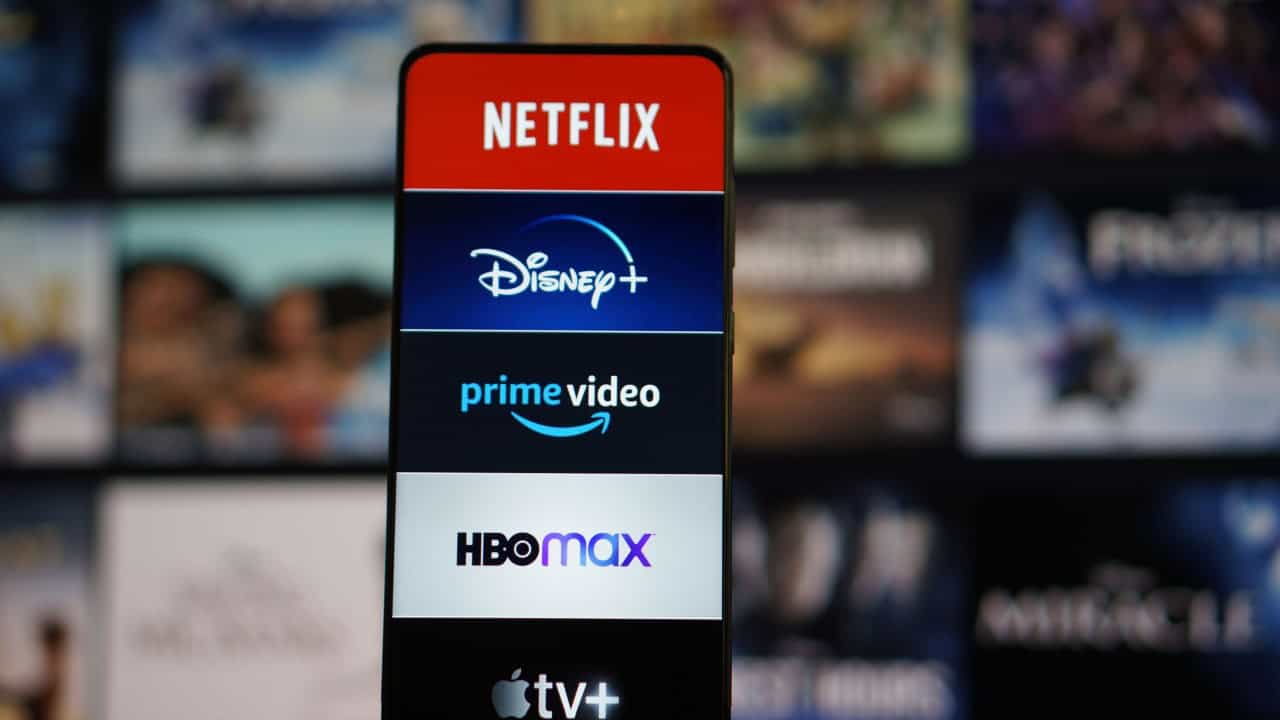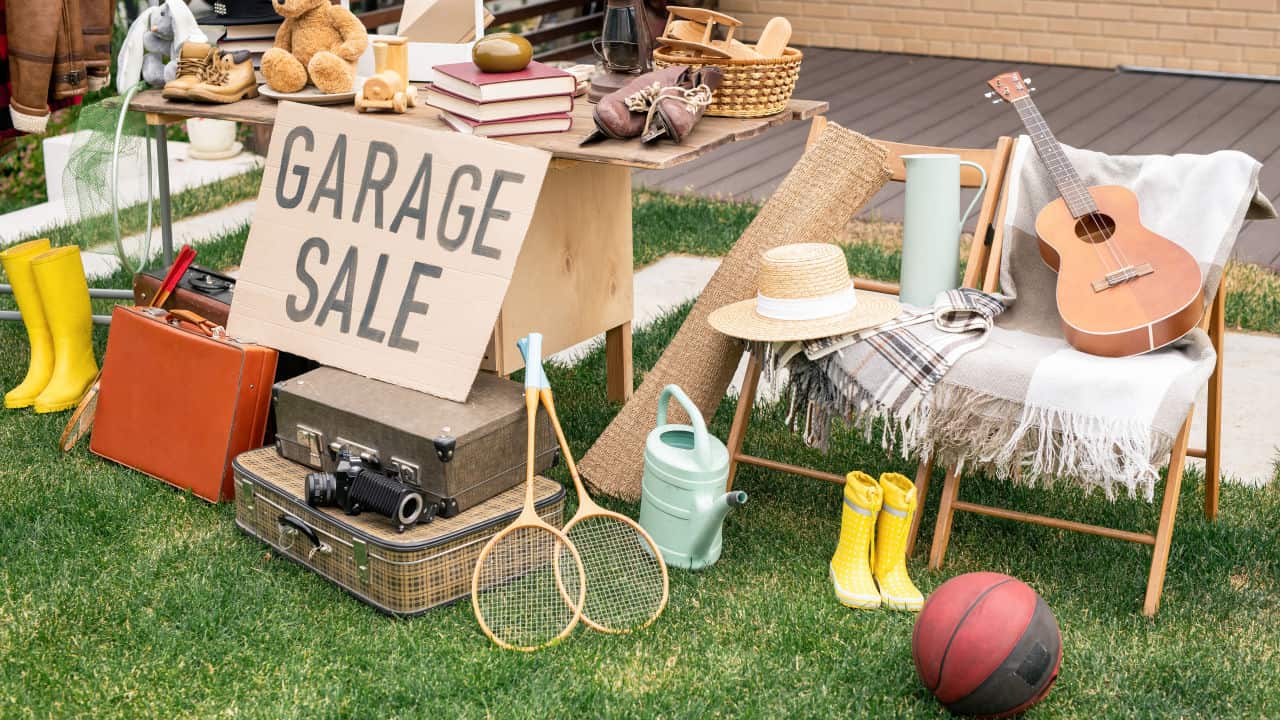THIS POST MAY CONTAIN AFFILIATE LINKS. PLEASE SEE MY DISCLOSURES. FOR MORE INFORMATION.
No one likes to waste money, but many of us do without even thinking. Over time, these wastes add up, costing us hundreds or even thousands of dollars.
Luckily, all that waste comes to an end right here. I share with you 29 overlooked ways you waste money and what to do instead.
I picked these items as they are easy to fix, so you will start saving money right away. The only question that remains is, how much money will you save?
#1. Forgetting About Subscriptions

Every service these days offers a subscription model to maximize revenue. The problem with this is we forget about the services we sign up for. Most times the monthly charge is added to our credit card and since we don’t review it as closely as we should, we end up paying for something we no longer use.
Make it a point to sit down and review what subscriptions you have and cancel the ones you no longer use.
#2. Grocery Shopping When Hungry

We are all guilty of this. I can count a number of times without much thought when I went shopping for one thing and ended up bringing home a frozen pizza, ice cream, and a bag of chips.
I even caved and bought some candy bars in the checkout line.
A smart way to save money is to avoid the grocery store when you are hungry. It only sets you up for wasting money.
#3. Throwing Out Leftovers

How often do you toss leftovers in the trash? While this act seems innocent, it is costing you money. You could save the food and reheat it for lunch or dinner on another day.
Over time, this trick adds up as you will need to buy less food since you are making multiple meals out of one dish.
#4. Not Planning Major Purchases

Major purchases tend to cost a lot of money. If you don’t plan for them, they could cost you thousands more.
First, you won’t have much money to put down, especially in the case of buying a house or a car. This means a bigger loan, which means more interest. If it’s for a smaller major purchase, like a new oven, or refrigerator, not having any money saved means putting the purchase on your credit card, and again, you pay interest.
Second, if you don’t plan, you usually end up paying a higher interest rate. Had you took the time to shop around, you could find the lowest interest rate possible. But since you didn’t, you pay what you are offered.
Even a 1% higher interest rate on a $200,000 home for 30 years will cost you an extra $40,000 in interest. Let that sink in for a minute.
#5. Getting Caught Up in Fads

There are all sorts of fads out there, from Beanie Babies back in the day, to fidget spinners more recently.
Heck, even getting caught up in conspiracy theories can rob you of your money.
The problem with fads is the feeling of missing out, or FOMO. You see everyone else (or what seems like everyone else) with the item and you feel the need to participate.
When you get this feeling of FOMO, it doesn’t matter if you have the money or not, you find a way to justify the purchase.
To overcome this, you have to truly know what you value and enjoy. It also helps to take the time to think about purchases before you make them.
Otherwise you are sure to get tricked into wasting a lot of money.
#6. Following Expiration Dates

It is important to understand the difference between an expiration date, a use by date, and a sell by date, as they are all very different.
In most cases, for packaged goods, you don’t have to follow the date printed on the box. These are suggestions when you should eat the food by as afterwards, it might become stale or not taste as good.
For items like milk and meat, you want to follow the expiration date as after this time, the food can spoil and you will end up very sick.
But the catch is with meat and the sell by date. This is the date the store has to sell the food by, not when it goes bad. You are OK to buy this food and freeze it for a few months.
By blindly throwing out everything with a part date, you are wasting a lot of food, and money.
#7. Couponing

Couponing can be a great way to save money, but it also can be a trick to get you to spend more. In some cases, we see the coupon for $1 off and can’t pass up the deal, even if we have no real interest in buying the item.
Other times, we are caught up in saving that we don’t compare prices. This leads us to buying the sale item, even though another version that is not on sale is still cheaper.
#8. Comparing The Wrong Price

Speaking of comparing prices, if you only compare the sale price, you aren’t comparing apples to apples. You have to account for the different sizes. This is where the unit price comes in handy.
The unit price gives you the true cost of the item by unit, and most times, it is the smaller price in the bottom corner of the sales tag.
Looking at this number will show you which is truly the better deal. And here is a bonus tip: most times, larger sizes are cheaper than their smaller versions. So a gallon of milk is a more frugal purchase than a half gallon.
With that said, if you are single and know you cannot finish a gallon of milk before it expires, then it is cheaper to buy the half gallon.
#9. Not Staying Up to Date with Your Spending

When you don’t budget or at least track your finances on a regular basis, you have no idea where your money is going. This can result in you paying for things you don’t use, or wasting money on things without realizing it.
For example, you might only think you are spending $15 here and there to eat out, but for the month you spent $300. By keeping an eye on things, you will catch this and hopefully make changes to your spending.
Also, when you don’t stay current, you risk overdrafting your bank account and incurring all sorts of fees and penalties. These are easy to avoid if you keep tabs on your spending.
#10. Avoiding Car Maintenance

Paying to get your oil changed or air filters replaced can seem more like an inconvenience than a requirement. As a result, many people skip these routine services.
While it might feel good to save the $100 now, you are costing yourself thousands down the road. A car that is not properly maintained will develop issues earlier and these issues could be significant.
You even end up needing to buy a new car a lot sooner than you should. Repeat this process and you are spending thousands more than you need to on new cars. All this could be avoided by getting the routine maintenance done.
#11. Not Knowing About Employee Perks

Did you know you probably have discounts on things from your work? Many employers offer perks, like discounts on dry cleaning, auto detailing, and more. The larger your company, the more potential perks you can take advantage of.
When I was working for a previous employer, they offered a 15% discount on cell phone plans for employees. It was a no-brainer to take advantage of.
And the best part, even after I left that job, I still kept the discount for 5 more years. If you don’t know what perks your company offers, reach out to the human resources department and ask.
#12. Buying Name Brands

Society values name brands, either thinking they are of higher quality or simply for the image of status. But in most cases, brand names are a waste of money. You are better off finding a private label item that costs less and is just as well made.
When I was younger, I was all into premium brand clothes. I was paying over $100 for a button down shirt. Then I saw a co-worker with a nice shirt and realized he paid $20 for it at Kohl’s. This blew my mind.
Now I primarily shop off label for clothes and food and save a ton of money. The key is not picking the lowest priced item, but the lowest priced item that is still high quality.
#13. Using Baggies to Store Food

Plastic baggies don’t cost much and so most people use them when packing lunches and for other things. But they are an ongoing cost, and one that keeps increasing.
A better option is to pay for reusable containers to store leftovers in or just for lunches at work. While they will cost more upfront, you will save money in the end.
And here is a bonus tip: spring for the glass or Pyrex containers. These can be put into the dishwasher, saving you time from having to clean them. Plus, you can put them in the microwave too.
While plastic containers will work, the plastics chemicals can leech out into your food, and this could possibly impact your health down the line.
#14. Using Paper Towels

Paper towels are cheap and easy to use. But they are a recurring cost to you. If you instead used some old rags, you could save yourself a good deal of money.
For $10 you can buy some cheap washcloths at the dollar store and use these to clean up messes. When they get dirty, throw them in the laundry and reuse again and again. You’ll be able to get a lot of use out of each one before you need to toss it and buy new.
#15. Ignoring Preventative Health Care

We talked about how maintaining your car is a smart way to save money, well the same idea applies to your health.
It can be inconvenient to take time off work and schedule your annual doctor or dentist visit, but your future self will thank you.
By going in for check ups, you can catch issues early, saving you money and maybe even your life. And even if there aren’t any immediate issues, going in can help you to be in better shape so that years down the road, you are spending less money because you took care of yourself.
#16. Comparing Yourself to Others

Comparing yourself to others is something most of us do and it robs us of the majority of our wealth. We see stunning pictures of vacations on social media or see the new car our neighbor has and we get jealous.
We think if they can have that, so can I. The problem is, we don’t know if they can really afford it. Or their perfect life online could in reality be a nightmare in real life.
The sooner you stop trying to compare to others and understanding your own values and living life accordingly, the sooner you can start building wealth and happiness.
#17. Buying Bottled Water

Bottled water is a booming business that takes advantage of our laziness. And the dirty secret is many of the popular brands are simply tap water masquerading as a healthy alternative to tap water.
A smarter idea is to buy a reusable water bottle. It doesn’t have to be a huge half gallon sized one either. A simple 20 ounce bottle works great.
And here is a bonus tip, stick with stainless steel or glass. These are healthier options
#18. Having Every Streaming App

I talked about forgetting about subscriptions earlier, but another issue is thinking you need to have every app. This is a waste of money as you most likely only watch one or two services on a regular basis.
A better option would be to keep track of the series or movies you want to watch, sign up, binge watch, then cancel. Rinse and repeat over and over.
#19. Using ATMs That Charge Fees

Using a third party ATM that charges fees is a fast way to become broke, especially if you visit it a few times a month.
The average fee is now approaching $6! Visit the ATM twice a month, that’s close to $150 a year in fees.
You are better off spending a few minutes to find the no fee ATMs. If they are not in your immediate area, make note of any where you commute and plan ahead.
Another option is to use a checking account that reimburses for ATM fees. The catch here is most banks limit the monthly amount, so you need to pay attention.
#20. Not Trying to Fix Things

We’ve become accustomed to throwing things out, even if they only need a small repair.
By disposing of everything we waste a lot of money.
Today, you can jump on YouTube and find endless videos on how to repair your broken items. Even if you don’t think there is a video, trust me, there is.
I’ve been amazed at how many videos I’ve found on things I never thought possible. This tip alone has saved me thousands of dollars by making small repairs and getting more life out of the things I own.
#21. Ignoring Employer Matching

Most employers offer a match on the money you contribute to your 401k plan. If you don’t contribute, you miss out on this free money.
Find out how much you need to contribute to get the maximum match and do that. If that is too much money, cut some expenses to get there as quickly as possible.
The sooner you do this, the longer this money can grow and compound, allowing you to fully enjoy retirement.
#22. Not Shopping on Facebook Marketplace

If you need to buy something, do you ever consider looking at Facebook Marketplace? You might be surprised at what you can find.
Because we live in a consumer driven society, people are always getting rid of stuff in good condition. Sure there is some junk for sale, but for the most part, you can find high quality items in good condition.
Next time you need something, spend a few minutes on Marketplace and you might be able to save some money.
#23. Visit Yard Sales in High End Communities

Another great way to save money is to visit yard sales in higher end communities. The people that live there usually take good care of their items, so not only are the odds good you get things in good condition, but you might also get more expensive items that are of higher quality.
And even if you don’t need an item, if you see a good deal, you might want to buy it and flip it for a profit!
#24. Not Having a High Interest Savings Account

If you keep any savings in a traditional bank savings account, you aren’t earning any money with interest. Worse, when you factor in inflation, you are losing money.
While your balance stays the same, your purchasing power decreases as things get more expensive. While a high yield savings account doesn’t guarantee you won’t lose money by keeping up with inflation, you have a much better chance.
Luckily there are plenty of online banks that you can choose from, including Ally Bank, Capital One 360, and more.
#25. Buying Extended Warranties

Extended warranties sound great. But they are usually filled with exclusions and caveats. Did you get your oil changed at a quick lube joint and not the dealer? This might invalidate your extended warranty.
And when it comes to consumer electronics, the reality is most are now built to be disposable. No longer are you buying a computer printer and it lasts for 10 years. If it fails during the extended warranty, you likely have to send it to a repair center. Now you are out of a printer for a few weeks.
You are better off buying the cheapest, best quality one, then saving up knowing you need to buy another one in a few years.
#26. Not Checking Your Tire Pressure

Checking your tire pressure is easy to do, but most of us neglect it. And the impact can be costly.
Not only do underinflated tires force your car to work harder and use more gas, it also shortens the lifespan of your tires.
And we all know a good set if tires can cost a few hundred dollars or more. While you don’t have to check your tires as frequently in the warm summer months, doing so every few weeks in the winter is critical.
And if you think your tire pressure monitoring system solves this issue, you are wrong. The reason is because they systems only alert you after you’ve lost 5-10% of pressure. So, you could be driving around with 8% lower pressure, costing you a lot money.
#27. Being Lazy

At the end of the day, most of us have a lot going on. As a result, we tend to put off little things that can help us save money.
This busyness or laziness costs us a lot of money. To overcome it, spend 10-15 minutes writing down various things you can do to save money. For example, cancel or ask for a lower cable bill, shop at different grocery stores, or see if there are any discounts you qualify for with insurance.
Once you have a list, organize it from biggest payoff to lowest. In other words, put the things at the top of the list that save you the most money. Then pick 1-3 that are the easiest or quickest to do and make a point to do them.
Work your way down the list until complete.
#28. Not Taking Advantage of Credit Card Rewards

We all agree credit cards can be dangerous if you aren’t careful with your spending.
For those that are disciplined, using credit cards is a great way to save some money.
Many cards offer travel rewards or cashback that you can use to for a discounted trip, as a statement credit, or cash in your bank account.
The first step is finding the card that matches your goals. If you don’t travel much, then a card that offers points for travel doesn’t make sense. Stick with a cash back card.
Next, be strategic how you use the card. Many offer different cash back amounts depending on where you shop. So, you might have one card you use at the grocery store and another you use for eating out.
This allows you to earn the most money possible.
#29. Not Looking for Discounts When Shopping Online

Too often we take the price we see when shopping online and accept it.
If you took 5 minutes to search for some coupon codes, you could save 10% or get free shipping.
The issue many people have is that often, the coupon codes don’t work, so you see searching as a waste of time.
This is a valid reason, but it doesn’t have to be this way.
There are apps and browser extensions out there that automatically do the work for you.
One great option is Honey. Simply install it in your browser and it will apply the best discount available.
No more excuses on not saving money!
Slash Your Monthly Bills

With inflation rising, your monthly bills are likely getting out of control.
Luckily, there are some simple steps you can take. Use this guide to help you save up to $7,000 a year on your monthly bills.
SLASH YOUR MONTHLY BILLS AND SAVE
Gas Hacks For Free Gas

You’ve probably wished you could get free gasoline, but thought that was impossible. But the reality is, it isn’t impossible.
There are many free gas hacks you can use to save money on fuel ups. Here are 15 ways to lower the cost of gasoline, and in effect, get free gas.
15 FREE GAS HACKS YOU NEED TO TRY
I have over 15 years experience in the financial services industry and 20 years investing in the stock market. I have both my undergrad and graduate degrees in Finance, and am FINRA Series 65 licensed and have a Certificate in Financial Planning.
Visit my About Me page to learn more about me and why I am your trusted personal finance expert.

